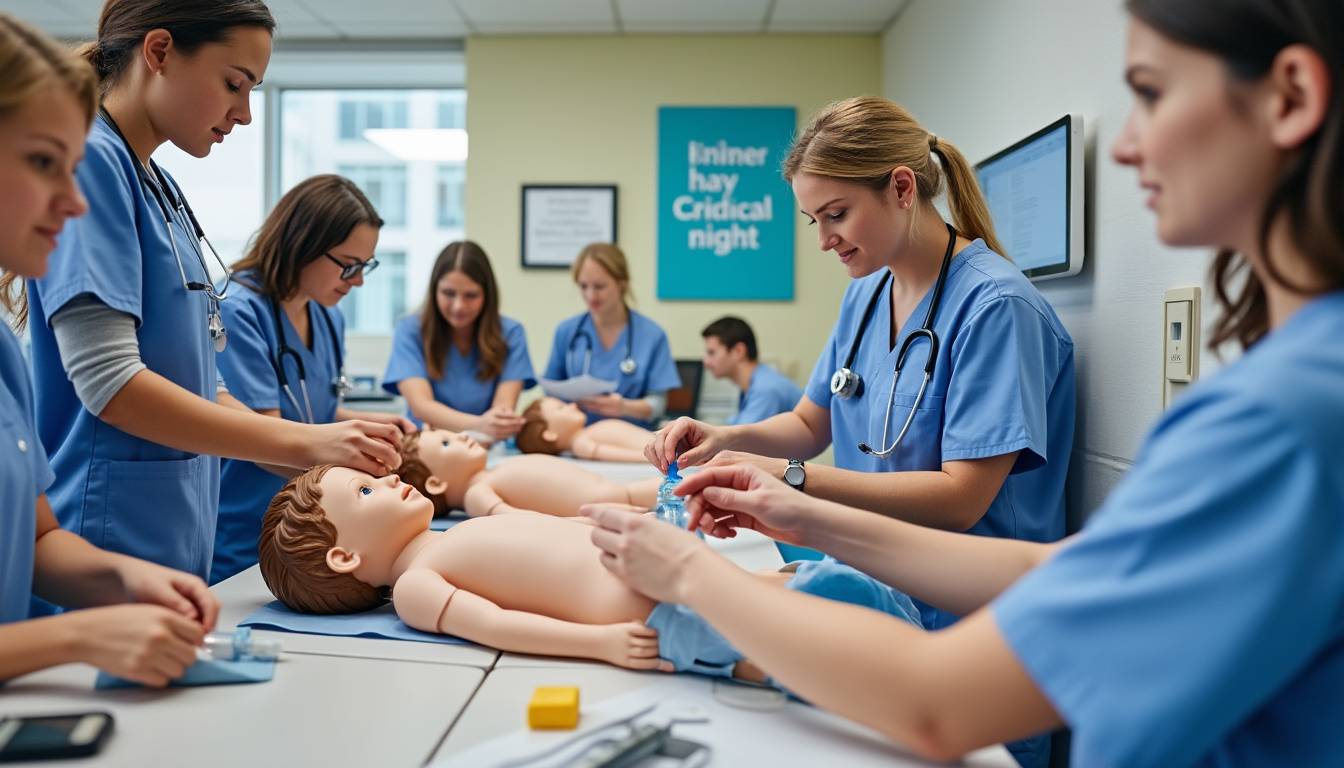As healthcare challenges evolve, Michigan Medicine is at the forefront of pioneering educational initiatives designed to prepare the next generation of pediatric healthcare professionals. These programs emphasize patient- and family-centered care, interdisciplinary collaboration, and innovative approaches to pediatric health. The integration of clinical excellence with advanced training ensures that future providers are not only skilled clinicians but compassionate advocates for children’s health. In this dynamic landscape, institutions like Johns Hopkins Medicine, Children’s Hospital of Philadelphia, and Cincinnati Children’s Hospital are also setting benchmarks, collectively raising the standard for pediatric education nationwide.
Innovative Educational Programs for Pediatric Healthcare Training at Michigan Medicine
Michigan Medicine has developed a comprehensive range of educational programs tailored for pediatric healthcare professionals. These initiatives are crafted to merge clinical expertise with holistic patient care, fostering skills that address both medical and psychosocial aspects of pediatric health.
- Patient- and Family-Centered Care Training: Emphasizing collaboration, programs teach practitioners to engage families actively in the care process.
- Interdisciplinary Learning Modules: Encouraging teamwork across specialties to improve holistic care management.
- Residency and Fellowship Programs: Balancing academic rigor with practical experience, preparing graduates for leadership in pediatrics.
- Innovator Development Program: Cultivating creativity, critical thinking, and visionary approaches to pediatric healthcare challenges.
- Continuing Medical Education (CME): Providing ongoing learning opportunities to stay abreast of cutting-edge pediatric research and treatment.
These programs reflect Michigan Medicine’s commitment to excellence and are aligned with initiatives seen at institutions such as Mayo Clinic and Boston Children’s Hospital.
Fostering Leadership and Academic Excellence in Pediatric Care
Leadership development is integral to Michigan Medicine’s educational mission. The institution actively supports pediatric educators through programs aimed at enhancing their academic careers and clinical teaching skills.
- APA Educational Scholars Program: Equips educators with tools to advance their academic productivity and visibility.
- Mentorship Networks: Connecting junior faculty with seasoned leaders from Cleveland Clinic Children’s and Stanford Children’s Health.
- Research Integration: Encouraging faculty and trainees to engage in pediatric health services research to inform clinical practice.
- Health Equity Focus: Embedding principles of equity to address disparities in pediatric care.
This emphasis ensures future pediatric leaders who are both clinically proficient and academically influential, shaping the future landscape of pediatric medicine.
Collaborative Conferences and Research for Advancing Pediatric Healthcare
Michigan Medicine promotes collaborative learning through conferences like the Partners in Pediatric Care (PIPC), attracting a diverse community of healthcare professionals committed to improving childhood health outcomes.
- Multi-disciplinary Participation: Physicians, nurses, residents, and specialists gather to share knowledge on managing acute and chronic pediatric conditions.
- Focus on Innovation: Presentations highlight technological advances and patient-centered strategies.
- Networking Opportunities: Building connections across major pediatric institutions including Texas Children’s Hospital and Nemours Children’s Health.
- Case Studies and Workshops: Practical sessions enable hands-on learning with real-world clinical scenarios.
Collaborative efforts such as these are vital for keeping pace with the rapidly evolving field of pediatric care and serve as platforms for continuous professional development.
Integrating Technology and Personalized Learning in Pediatric Healthcare Education
With digital transformation reshaping healthcare, Michigan Medicine incorporates technology to enhance educational delivery and personalize learning experiences for pediatric professionals.
- Online Modular Courses: Flexible, interactive content accessible to a broad audience.
- Simulation-Based Training: High-fidelity simulations providing realistic clinical scenarios.
- Telemedicine Integration: Training providers to leverage digital consultations for improved access.
- Data-Driven Assessment Tools: Monitoring learner progress to tailor ongoing education.
This approach reflects trends observable at Johns Hopkins Medicine and Cincinnati Children’s Hospital, reinforcing a future-ready pediatric workforce.
Supporting Early Childhood Health Education: A Broader Perspective
Michigan Medicine’s commitment to pediatric care extends into community health education, partnering with statewide programs that support early learning and well-being.
- Public Health Initiatives: Collaborations to promote childhood health through education in schools and community centers.
- Parental Engagement Strategies: Empowering families with resources for health literacy.
- Advocacy for Policy Support: Engaging in dialogues about funding, such as the challenges highlighted in Oregon’s early learning initiatives.
- Collaborative Research Projects: Examining the impact of health education policies on pediatric outcomes.
These efforts complement Michigan Medicine’s educational directives and are pivotal in shaping a healthier future generation. For more about pediatric health education, explore initiatives detailed in Michigan Childhood Health Education.
Addressing Current Challenges in Pediatric Education and Policy
The evolving political landscape poses challenges to education and healthcare, such as policies affecting undocumented children’s access to school-based services, which have direct implications for pediatric healthcare practitioners.
- Understanding Policy Changes: Navigating new federal and state legislation impacting patient demographics.
- Advocacy Training: Equipping healthcare providers to serve as advocates for vulnerable populations.
- Resource Allocation. Managing budget reductions and their impact on early learning and child care programs.
- Cross-Institutional Collaboration: Partnering with educational and healthcare organizations to mitigate adverse effects.
Staying informed is crucial; discover more on education policy impacts via Trump Eliminates Education for Undocumented and budget issues at Oregon Early Learning Budget Reductions.


